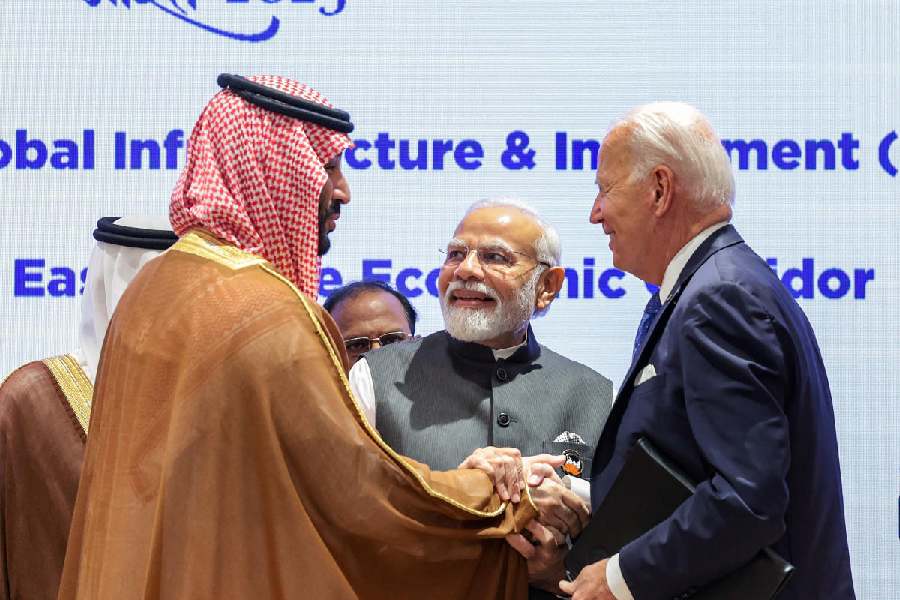India, with the help of “emerging economies” including China, on Saturday managed to evolve a consensus in the G20 on Ukraine to pave the road for a New Delhi Declaration that was apparently up in the air till the eleventh hour.
What emerged was a climbdown from the Bali Declaration at last year’s G20 Summit where Russia was identified as the aggressor.
That a consensus had been reached was announced by Prime Minister Narendra Modi in the afternoon while addressing the summit’s second session, on “One Family”.
“I have just now got good news. Because of the hard work of our teams and all your cooperation, there is consensus on the New Delhi G20 Leaders’ Summit Declaration,” he said.
While India’s G20 Sherpa Amitabh Kant claimed there was cent per cent consensus among all the countries on all 83 paragraphs of the Declaration, the document says: “There were different views and assessments of the situation.”
It notes that the countries iterated their national positions, indicating that the negotiations went down to the wire and that it boiled down to finding acceptable language that would allow everyone to come on board.
“Concerning the war in Ukraine, while recalling the discussion in Bali, we reiterated our national positions and resolutions adopted at the UN Security Council and the UN General Assembly and underscored that all states must act in a manner consistent with the Purposes and Principles of the UN Charter in its entirety,” the Declaration says.
“In line with the UN Charter, all states must refrain from the threat or use of force to seek territorial acquisition against the territorial integrity and sovereignty or political independence of any state.”
The Declaration also takes note of the position Russia and China had adopted from the start of the negotiations for this summit — that the G20 is not a platform for resolving geopolitical and security issues.
“Reaffirming that the G20 is the premier forum for international economic cooperation, and recognising that while the G20 is not the platform to resolve geopolitical and security issues, we acknowledge that these issues can have significant consequences for the global economy,” the document says.
According to Kant, the Declaration “demonstrates India’s ability to bring all developing countries, all emerging markets and all developed countries together on the same table and bring consensus”.
Asked which country had helped India build the consensus, external affairs minister S. Jaishankar said: “Everybody helped.”
Given the political capital Modi has invested in the G20, the Indian delegation had worked overtime to ensure there was a New Delhi Declaration.
Considerable time was spent in the last few days on geopolitical issues centred on the war in Ukraine, Jaishankar said, adding that the emerging markets, in particular, had taken the lead on this.
“Many of us have a strong history of working together,” he said.
On the reference to “different views and assessments of the situation” in the Declaration, Jaishankar said: “We are being transparent. This is a polarising issue; there are a spectrum of views and in all fairness, it was only right to record the reality of what happened in the meeting rooms.”
On the softening of stance on Russia compared with the Bali Declaration, Jaishankar said the situation was different then.
“Many things have happened since then…. We don’t have a theological view. The New Delhi Declaration responds to the situation and concerns of today like the Bali Declaration did.”
This is the first time since India assumed presidency of the G20 that a consensus document has been brought out. In all the track meetings held through the year, the outcome document was essentially a chair’s statement as Russia and China objected to any mention of the war in Ukraine in G20 documents, arguing that this was an economic forum and not a political one.










